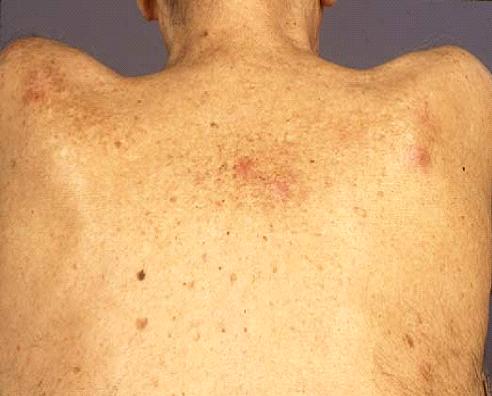Chronic Lymphocytic Leukemia Symptoms, Causes, Diagnosis and Treatment

What Is Chronic Lymphocytic Leukemia?
Lymphocytes are the white blood cells that are available in the bone marrow and fights different types of infections. In chronic lymphocytic leukemia, cancer begins from these cells and gradually enters the blood. This is the reason of why the name includes ‘lymphocytic’. In some cases, cancer spreads in other parts too including liver, spleen and lymph nodes. The reason why the name includes ‘chronic’ is that it grows at a slower rate than other types of leukemia. However, chronic lymphocytic leukemia is discovered in two forms i.e. the growth rate of one type of leukemia is slower than the other one.
What Are The Symptoms Of Chronic Lymphocytic Leukemia?
Although people usually learn about chronic lymphocytic leukemia when they go for blood tests or cell count for any reason but the following symptoms may evolve:
- Fever.
- Losing of weight.
- Infections at frequent intervals.
- Enlargement of lymph nodes.
- Fatigue.
- Regular sweating at night.
- Enlargement of spleen.
If any combination of these symptoms shows up, a person must consult a doctor and immediately start the treatment. If it is a slow growing leukemia, it might not spread further.
What Are The Causes Of Chronic Lymphocytic Leukemia?
According to medical researches and theories, genetic changes in DNA of cells that produce blood results in the development of ineffective and abnormal lymphocytes. Since lymphocytes are cells that fight infections, the abnormal ones can create certain complications. This is because the quantity of abnormal cells tends to increase overtime and destroy the effective lymphocytes. However, the reason of what circumstances creates this genetic mutation is yet to be discovered.
What Are The Risk Factors Of Chronic Lymphocytic Leukemia?
The following factors may give a rise to the risks of chronic lymphocytic leukemia:
- An age of over 60 years.
- White people more than people from other races.
- Contact with certain chemicals.
- Gender; males are more likely to suffer from chronic lymphocytic leukemia.
- Genetic reasons; people whose forefathers suffered from the disease or other cancers related to blood or bone marrow are likely to suffer from this leukemia.
Since these are the risk factors only, it is not uncommon that people who do not meet these factors suffer from chronic lymphocytic leukemia too.
How Is Chronic Lymphocytic Leukemia Diagnosed?
In order to diagnose chronic lymphocytic leukemia, the following tests are most likely to be recommended by doctors:
- Test to count the quantity of cells; presence of excess B cells, a type of lymphocytes, could indicate this leukemia.
- Immunophenotyping, also known as flow cytometry, help doctors to know what caused the quantity of lymphocytes to increase.
- Fluorescence in situ hybridization, or FISH, will let doctors know which treatment method to use and examine chromosomes.
Other tests like MRI and CT scans could also be required in some cases.
How Is Chronic Lymphocytic Leukemia Treated?
While no treatment is required during the early stages of this leukemia, the following may be required at later stages:
- Bone marrow stem cell transplant.
- Chemotherapy.
- Drug therapy.
How To Prevent Symptoms Of Chronic Lymphocytic Leukemia?
Cancer screening, vaccinations against infections and strict monitoring on different health issues can prevent or at least relieve the victims from symptoms.
Related Articles :
Ecthyma Symptoms, Causes, Diagnosis and Treatment
Diaper Dermatitis Symptoms, Causes, Diagnosis and Treatment
Bartonellosis Symptoms, Causes, Diagnosis and Treatment
Pruritus Symptoms, Causes, Diagnosis and Treatment
Measles Symptoms, Causes, Diagnosis and Treatment
Keratosis Pilaris Symptoms, Causes, Diagnosis and Treatment
Impetigo Symptoms, Causes, Diagnosis and Treatment
Idiopathic Thrombocytopenic Purpura Symptoms, Causes, Diagnosis and Treatment
Ichthyosis Vulgaris Symptoms, Causes, Diagnosis and Treatment
Seborrheic Keratosis Symptoms, Causes, Diagnosis and Treatment
Scleroderma Symptoms, Causes, Diagnosis and Treatment
Porphyria Symptoms, Causes, Diagnosis and Treatment
Polycythemia Vera Symptoms, Causes, Diagnosis and Treatment
Hidradenitis Suppurativa Symptoms, Causes, Diagnosis and Treatment
Hyperhidrosis Symptoms, Causes, Diagnosis and Treatment
Lichen Planus Symptoms, Causes, Diagnosis and Treatment
By : Natural Health News




